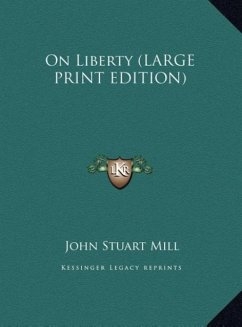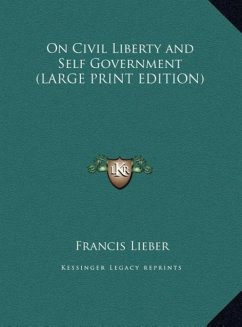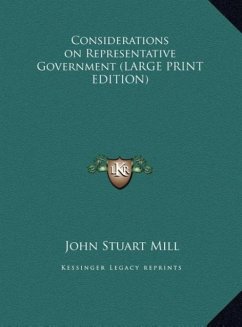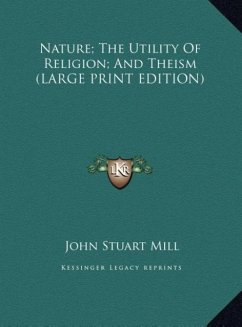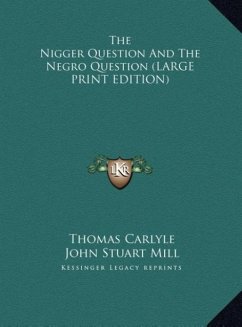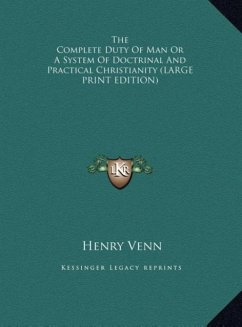(LARGE PRINT EDITION) 1880. John Stuart Mill is one of the foremost representatives of utilitarian thought as well as one of the most influential of nineteenth century liberals. Influenced by his wife, Harriet Taylor, Mill developed a very humane version of utilitarianism that was sympathetic to women's rights, labor unions, proportional representation, and other liberal themes. Contents: Of the liberty of thought and discussion; Of Individuality, As One of the Elements of Well-Being; Of the Limits to the Authority of Society Over the Individual and Applications. See the many other works by this author available from Kessinger Publishing.
Hinweis: Dieser Artikel kann nur an eine deutsche Lieferadresse ausgeliefert werden.
Hinweis: Dieser Artikel kann nur an eine deutsche Lieferadresse ausgeliefert werden.

